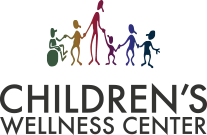Common Winter Illnesses
- Home
- Common Winter Illnesses
Common Illnesses During Winter Months
Bronchiolitis is a common lung infection in young children and infants. It causes congestion in the small airways (bronchioles) of the lung. Typically, the peak time for bronchiolitis is during the winter months. It is caused by a virus. Symptoms may include runny nose, cough, and fever. Some children may develop difficulty breathing exhibiting shortness of breath, rapid and labored breathing and wheezing. If this occurs, seek medical attention immediately. Bronchiolitis is contagious. An individual can contract the virus through the air when someone who is sick coughs, sneezes or talks. You can also contract bronchiolitis by touching shared objects and then touching your eyes, nose or mouth. A common cause of bronchiolitis is Respiratory Syncytial Virus or RSV. RSV is so common that most children have been infected with the virus by age 2. Respiratory syncytial virus can also infect adults. Antibiotics are not given to a child with RSV because it is a virus and antibiotics are only effective against bacteria. The majority of cases of bronchiolitis can be cared for at home with supportive care. Make sure your child is getting enough liquids. Consider saline nose drops or suctioning with a bulb to relieve nasal congestion. Be alert for changes in breathing difficulty. The condition may last for a week up to a month. Like with all respiratory infections, if your child has any trouble breathing, contact our office immediately or call 911.
Bronchitis is a respiratory disease in which the mucus membrane in the bronchial passages of the lung becomes inflamed. Acute bronchitis is usually caused by a virus. Viruses can be spread from person to person by coughing. They can also be spread if you touch your mouth, nose, or eyes after coming into contact with respiratory fluids from an infected person. Symptoms include coughing, sore throat, shortness of breath, fatigue, runny nose, nasal congestion and or a low-grade fever. Most people DO NOT need antibiotics for acute bronchitis. Treatment for this viral infection will usually resolve on its own within 1-2 weeks. Take the following steps to get relief. Drink plenty of fluids, get lots of rest, and take Motrin or Tylenol as needed for fever or body aches. People with asthma are encouraged to follow your asthma action plan. Like with all respiratory infections, if your child has any trouble breathing call the office immediately or for more serious cases call 911.
Croup is a condition that causes an inflammation of the upper airways. It often leads to a barky cough or hoarseness, especially when a child cries or coughs. It may cause stridor, which is an abnormal, high-pitched, musical breathing sound usually heard when taking in a breath. Children are most likely to get croup between 3 months and 5 years of age. At home treatment includes exposing your child to cool or moist air, such as in a steamy bathroom or outside in the cool air. This may offer some relief. If your child develops a barky cough or stridor, seek medical care. Your doctor may need to prescribe a steroid medicine to reduce the swelling in your child’s upper airway. Steroids can be inhaled, taken by mouth, or given by injection. Antibiotics, which treat bacteria, are not helpful for treating croup since croup is caused by a virus. Please call our office if you believe your child has croup.
Influenza (flu) is a contagious respiratory illness caused by influenza virus. It can cause mild to severe illness. Serious outcomes of flu infection can result in hospitalization or death. Some people, such as older people, young children, and people with certain health conditions are at high risk for serious flu complications. The best way to prevent the flu is by getting vaccinated each year.
Signs and symptoms’ of influenza are:
•Fever* or feeling feverish/chills
•Cough
•Sore throat
•Runny or stuffy nose
•Muscle or body aches
•Headaches
•Fatigue (tiredness)
Treatment for influenza consists of:
•Stay home and rest.
•Drink fluids.
•Take medicines for fever such as acetaminophen or ibuprofen.
•Clean your hands often.
•Cover your coughs and sneezes.
https://www.cwcpediatrics.com/stomach-flu-vs-flu/
http://www.cdc.gov/flu/avianflu/influenza-a-virus-subtypes.htm
http://kidshealth.org/parent/general/eyes/childs_cough.html
